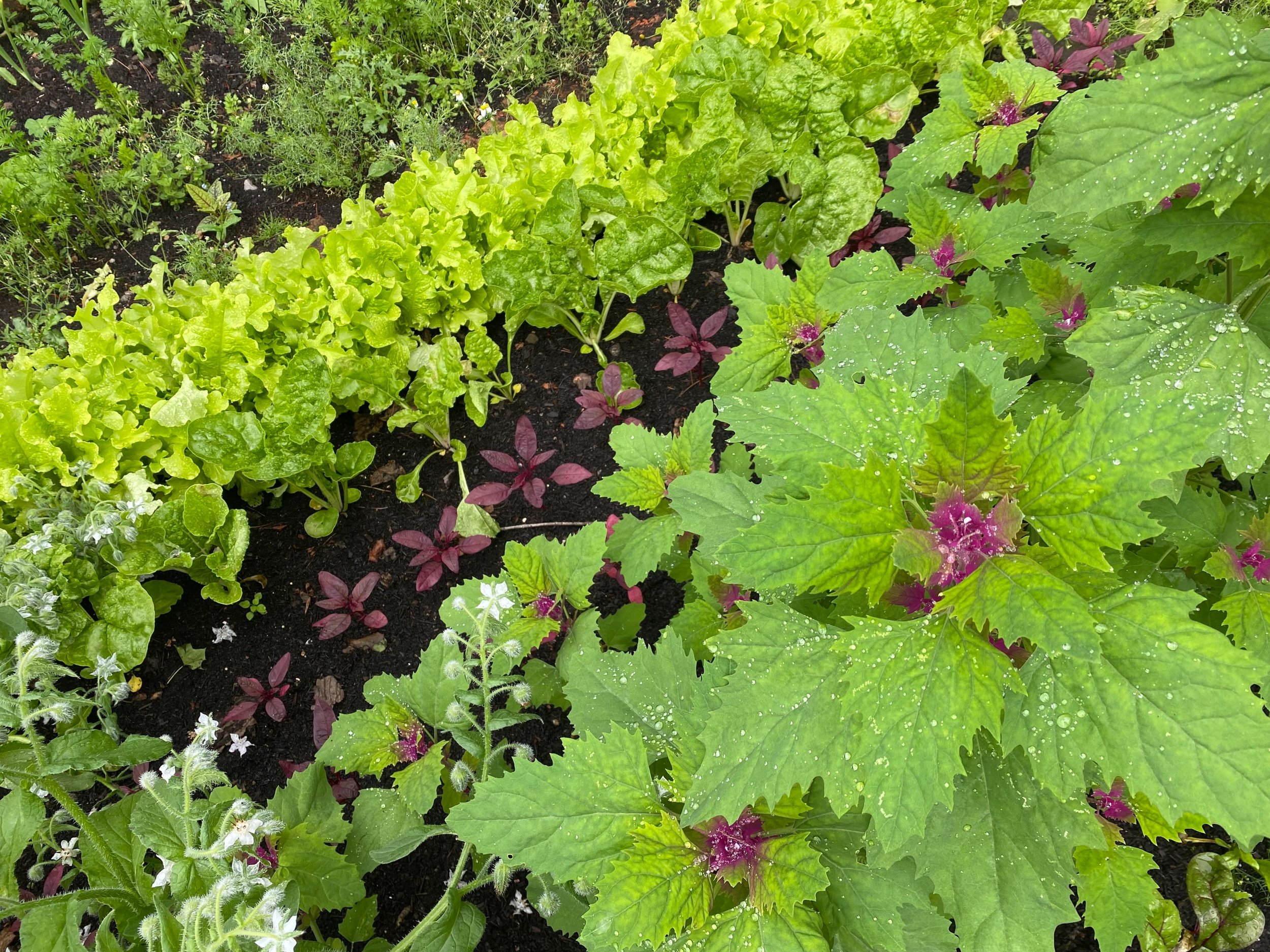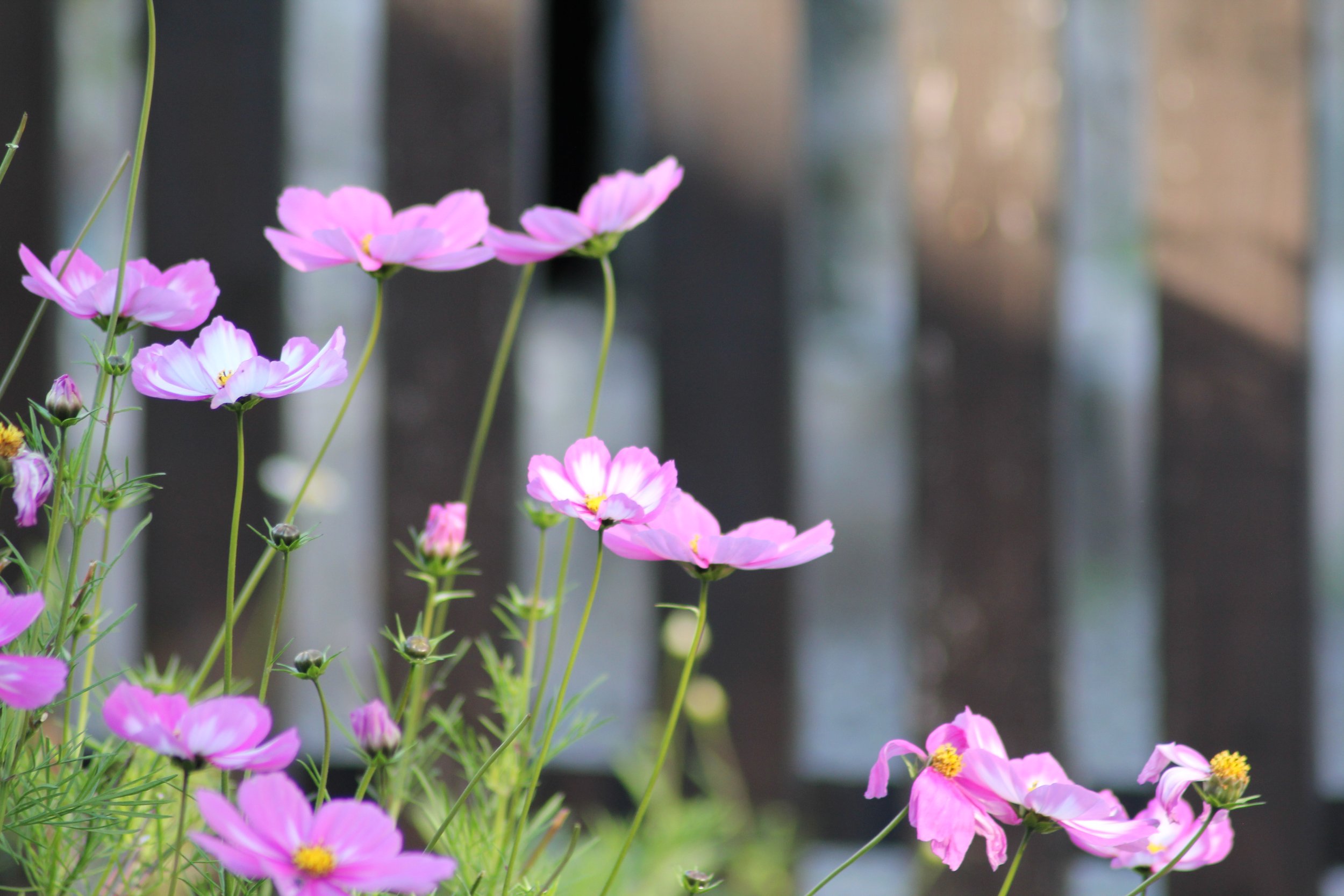Seeds for your garden
Open-pollinated vegetable, herb and flower seeds
By Lynne Maclagan
I’ve updated my blog on seeds for your garden to include a few new seed companies, including Seeds of Scotland, a vegetable seed farm in the north Scotland. I’m so pleased to feature another Scotland-based grower, alongside Poyntzfield Herb Nursery in the Black Isle.
The first head gardener I worked for told me about Real Seeds, a seed producer based in England. Discovering their ethos, their methods and their range changed how I thought about seeds. I can add seeds as one of my (many) obsessions.
Real seeds are true seeds. They are pollinated in the open air by insects or the wind or other natural means. Seed is saved from the crops which did the best, the ones which thrived in the conditions. There are no hybrids. No GM seeds. No standardisation. Quite simply, they are adaptable crops, and therefore, more resilient to your environment.
You can save these seeds, selecting the ones that did best in your plot. You then share them with friends, start a seed circle. No-one owns these seeds. You pick the seeds that did well in your environment and year-on-year you will grow more resilient crops.
SEED SUPPLIErs
I’ve highlighted a few seed suppliers who I use regularly for my kitchen garden seeds. They are UK-based, open-pollinated seed producers whose work I like to support. There are many more. Search for “open-pollinated seeds UK” and you’ll see. Try them out and find your own favourites.
Seed packets and soil blocker for seed sowing
Real Seeds
The Real Seeds catalogue is extensive. There are heirloom and heritage seeds from beans to leeks to peas to tomatoes and everything in between. I love their range of Asian greens like mibuna and mizuna, which keep me going in the cooler season. Most of all, every year, I reach for the Sutherland kale seeds. It’s a big leaved, hardy kale once grown by crofters in the north of Scotland.
Your seeds mostly come in little paper packets and with a sheet of detailed seed saving instructions. The Real Seeds website has a free downloadable guide too — they’re doing what they can to help more people to learn how to save their own seed. If you are really keen to learn all you can about seed saving, they have a book too which gathers together their decades of knowledge.
Seeds of Scotland
“Open-pollinated seeds for the Scottish climate” is their key selling point. And it’s a good one for me, especially since most are also grown in the Scottish Highlands. Their seeds are mostly for your kitchen garden and feature one of my favourite cherry tomatoes, ‘Black Cherry’. They follow agroecological principles, meaning that they consider ecology in their farming practice.
Vital Seeds
Based in South Devon, Vital Seeds grow vegetables and flowers and sell a range of open-pollinated seeds. I’ve tried their leafy greens, chillis, beans and flowers. Like Real Seeds, they are keen to encourage a diversity in our food crops and encourage more of us to save our own seed. They offer an online seed saving course, which I haven’t tried yet but it’s on my to-do list!
Heritage Seed Library
You’ll find rare seeds, seeds which have been dropped from the big seed catalogues and heirloom varieties which have been saved by home gardeners over decades. They have seed guardians around the country who save and supply seed to the library each year.. Each year they release a list of available seeds for their members to choose up to six varieties. As a member of the Heritage Seed Library at Garden Organic, you are helping to keep unusual varieties of vegetables in our food system, while adding a bit of diversity to your own plate at the same time.
Poyntzfield Herb Nursery
Based on the Black Isle, a peninsula in the north east of Scotland, Poyntzfield Herb Nursery has a vast range of herb plants and seeds. The seeds come in tiny brown paper packets and you can choose from culinary, medicinal and aromatic herbs. I’ve tried a fair few so far, including the statuesque wild fennel and aromatic anise hyssop. Most of all, I love the low growing Scots lovage, which is a hardy plant for cold and windy sites. Scots lovage, like the regular lovage, is a tasty addition to soups and stews.
Scotia Seeds
For wildflowers from and for Scottish gardens or meadows, and a sustainable source for bluebells. Scotia Seeds also do seed research and testing.
Cuckoo flower, marsh thistle, meadowsweet, valerian, and several other species can help you to naturalise areas of your damp Argyll gardens.
Higgeldy garden
Cut flower seeds directly to your door. Floaty cosmos, nodding cerinthe and colourful cornflowers are among some of the flowers that Higgeldy Garden produce. Chosen for their longevity and gorgeousness in your vase, as well as in your garden, I sow their cosmos every year for their beautiful long-flowering blooms. Even if they get munched to the ground by slugs in spring, they bounce right back more vibrant than ever.
Higgeldy Garden seed sowing guide
Seed Co-operative
Flowers, herbs, vegetables and green manures are grown for seed from the Seed Co-operative’s 24-acre farm in Lincolnshire. I’ve loved their spinach, cosmos and hyssop so far. Their range of seeds will help you to create a healthy eco-system for food growing in your garden or allotment. This co-operative started as an initiative of the Biodynamic Association and was supported by the likes of Garden Organic and the Organic Research Centre.
Tamar organics
Based in Cornwall, Tamar Organics have an impressive range of organic seeds, for the kitchen and flower garden, as well as rhubarb and fruit trees. They also stock compost, twine and other supplies that growers may need. I’ve used their green manures, garlic bulbs and many herb seeds with good results.
Kitchen garden with rows of giant goosefoot, amaranth, salads, chard and carrots.
Why save seed?
Put very simply, saving seed helps us to maintain a healthy diversity in our crops and our diet.
Interested in learning more about seed saving and open pollinated seeds? I recommend reading about seed sovereignty, open-pollinated seeds, seeds for climate change resilience and why this is all important. Here are a few further resources worth checking out:
Seed Sovereignty programme with the Gaia Foundation: A food revolution starts with seed.
Gaia Foundation: Food, seed and climate change resilience.
Open-Pollinated Seeds Initiative: Passionate about seeds.
Organic Seed Alliance: Grow seed for the common good
Open Source Seed Initiatve (Europe): Protecting seed as commons.
I created this blog post for #SeedWeek 2024 (from 26 January).
Cosmos flowers grown from Higgeldy Garden seeds
Photos are all copyright of Lynne Maclagan.



